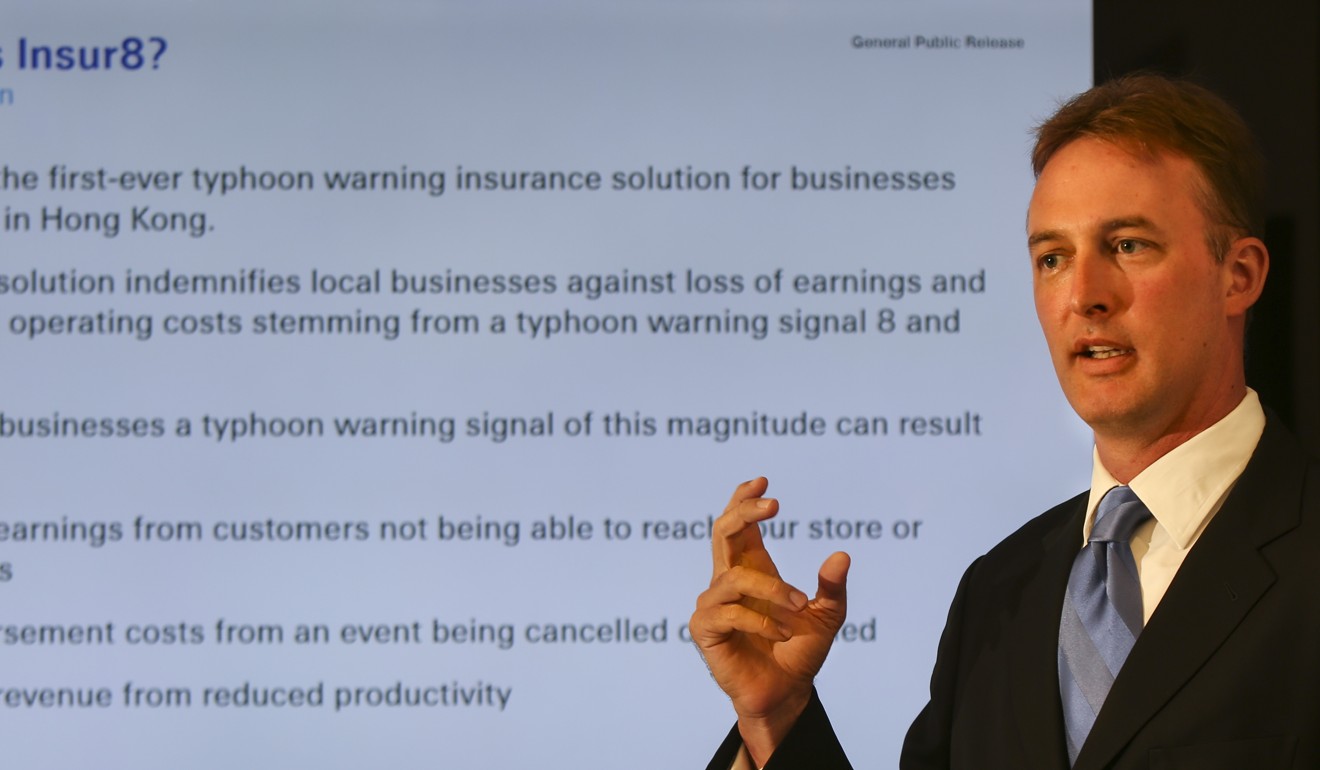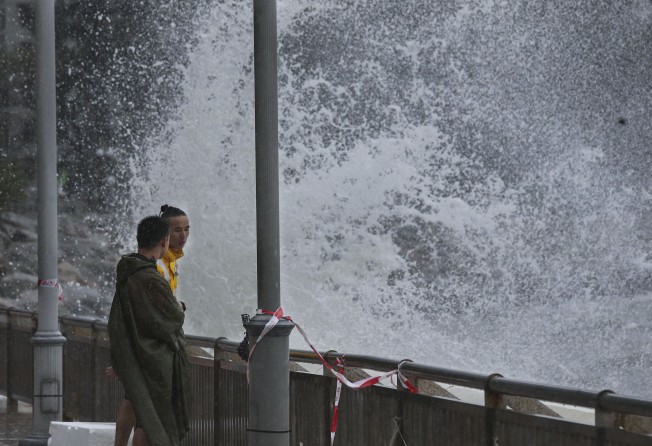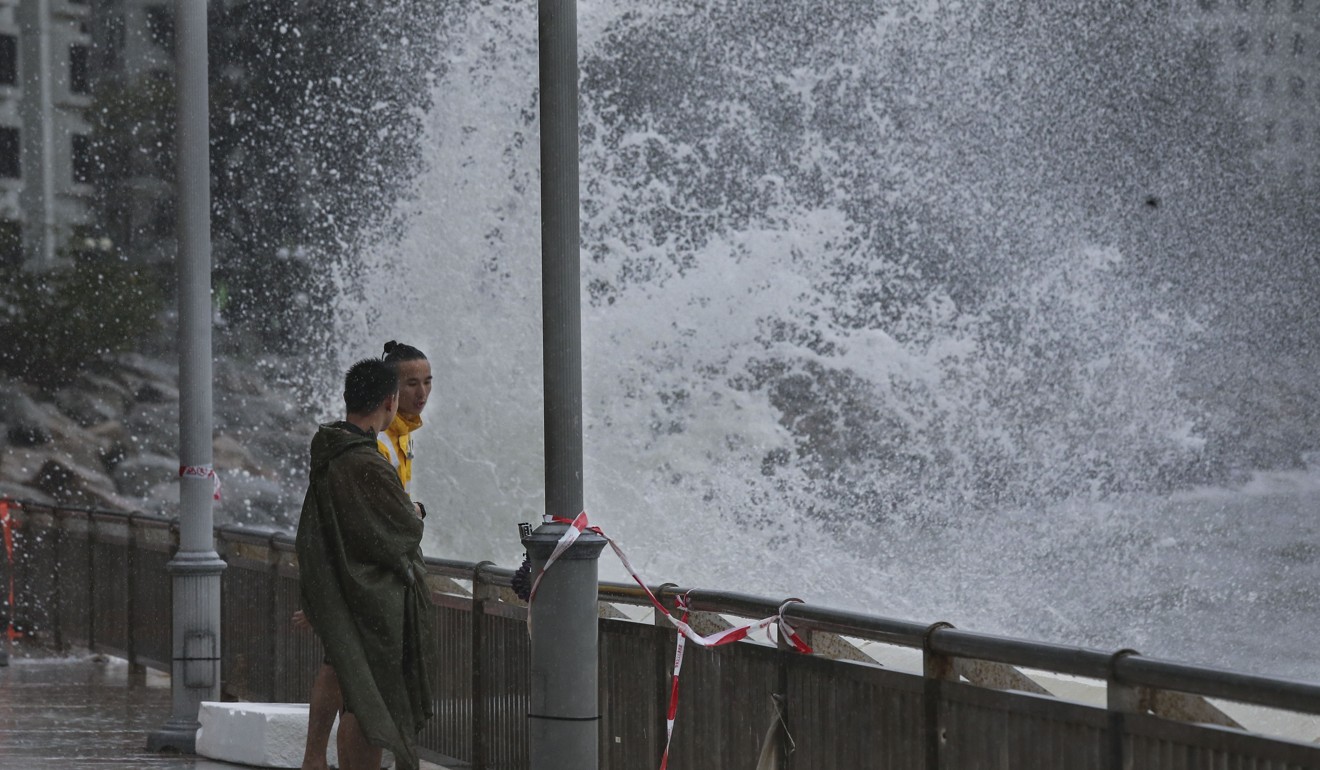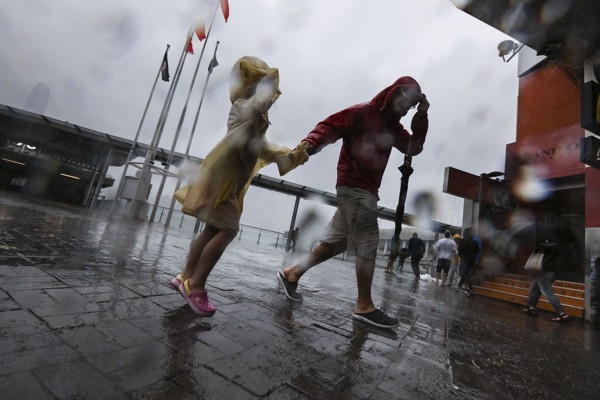
How being marooned on an island inspired Swiss Re's specialist typhoon insurance policy
Swiss Re findings suggest that a No.8 typhoon can cost the Special Administrative Region a staggering HK$4.29bn daily

Life on one of Hong Kong’s many outlying islands can be hard to beat when the sky is blue and the sun is out. But when typhoons strike, it isn’t much fun, says Dylan Bryant.
The head of North Asia for Swiss Re Corporate Solutions, and his family, call Peng Chau home – one of Hong Kong’s most popular island hideaways.
He found himself marooned there again last week, as Tyhoons Hato and Pakhar swept ashore.
The island’s local shops, schools and businesses were all closed, as they were right across Hong Kong, and its ferry services halted.
“This certainly wasn’t the first typhoon I’ve experienced here, but it was the most disruptive for me and my family and with my insurance hat on, I just thought, ‘How much of an impact events like this can have across the whole of HK?’”.
“I had plenty of time to think about being in the same situation last year when a typhoon hit,” Bryant told the Post.

Personally, it was easy to work out: he saved money on his ferry trip to work as well as the cost of lunch.
“But I also had to cancel a trip to the movies my wife and I had planned at the IFC, and dinner afterwards. My daughter was pretty happy as she got a day of school,” he said.
“The real downside of typhoons is the economic impact to businesses of all sizes that rely on generating income from people travelling to and from work, the meals they eat and the services they consume each and every day. What I saved was someone else’s loss of income.”

Very much with this kind of widespread disruption in mind, his company’s Swiss Re Institute set about this year researching the costs involved when a typhoon hits Hong Kong.
Its findings suggest that loss of business alone can cost the Special Administrative Region a staggering HK$4.29 billion (US$549.5 million) per day, taking into account the value of lost business as a result of closed offices, restaurants, shops and banks, much of which are currently uncovered by insurance.
“We collated loss information over the past 15 years of typhoons, in a physical damage sense. But we quickly realised those losses were relatively small, and this was already well covered by traditional risk solutions, which are widely available in Hong Kong,” he said.

The company then built a business model to launch what it claims to be the first insurance to be offered in Hong Kong specifically to cover all eventualities of a no.8 typhoon signal pr above being raised.
The result was the launch in July of its “Insur8” policy, which is designed to pay out to policyholders who might not only suffer property damage, but business losses as a result of such a severe storm.
The terms of cover, premiums and levels of compensation are all subject to negotiation.
And within the first month of its being available to customers, Hong Kong was been hit by two Typhoon no.8s, with Hato and Pakhar sweeping in within five days of each other last week, while a third, Typhoon Mawar, is now being predicted to be nearing on Sunday.
Bryant and his family may well be forced to stay at the island again on Sunday – but he says he feels satisfied that at least his company has done its bit to try and ease the financial pain often suffered by many individuals and businesses, when typhoons strike Hong Kong.
* A previous version of this story coverted HK$4.29 billion as US$549.5 billion. This has been corrected to US$549.5 million.